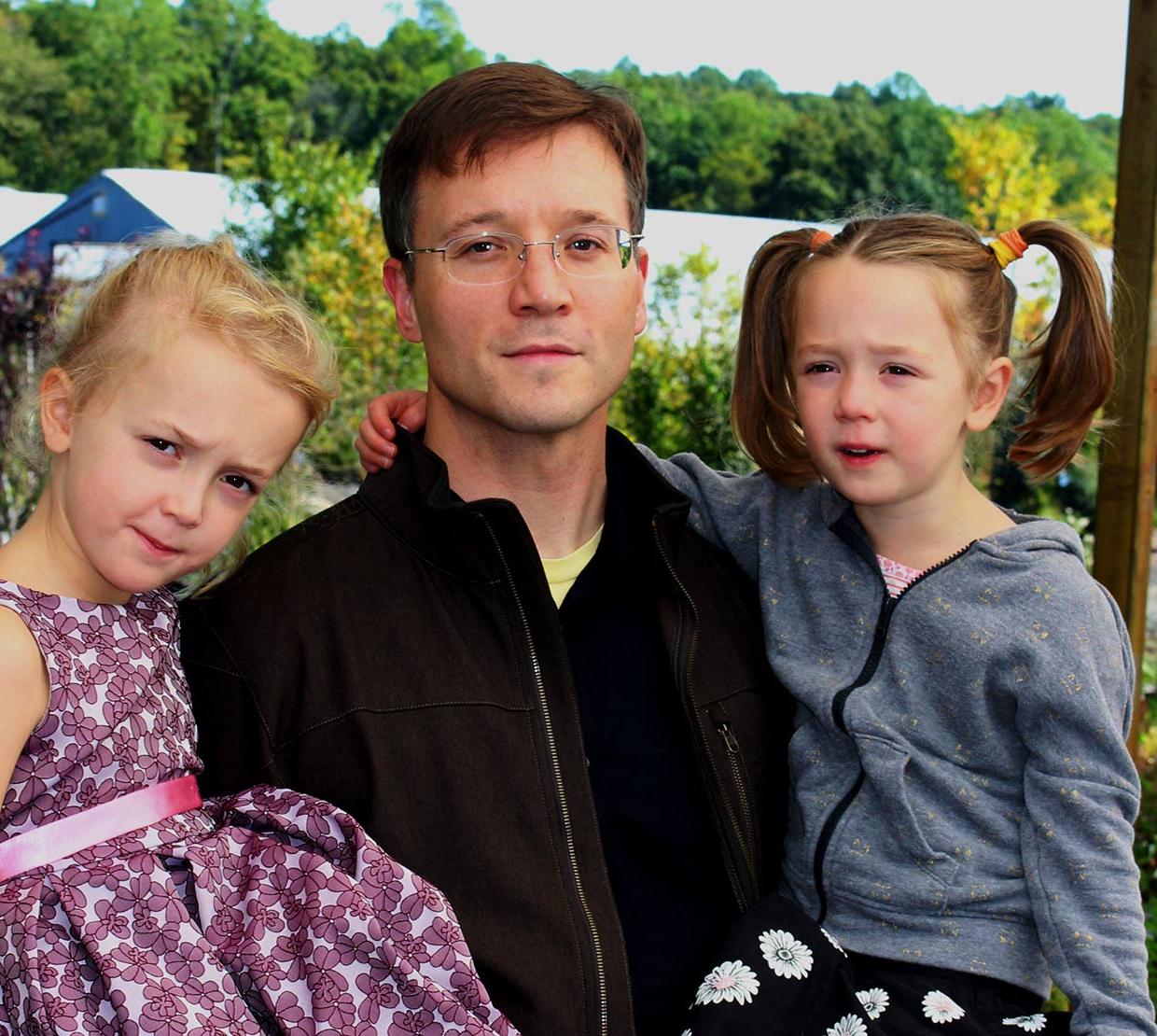Oregon State’s strong Ph.D. program in biochemistry and biophysics helped alumnus Justin Hall (Ph.D. ’10) jumpstart his career at Pfizer Pharmaceuticals, one of the world’s premier biopharmaceutical companies. Now he is excited to return to Oregon State University and give back to the community that helped him. He will present two seminars students and faculty on November 16 at 3 p.m. in ALS 4001. The biochemistry & biophysics graduate is receiving the College of Science’s 2018 Young Alumni Award on November 15.
The award recognizes exceptional achievements in career, public service and/or volunteer activities of a young alumnus/alumna who received their degree within the last 10 years.
“It’s really sort of an homage to the training I got at Oregon State, and my thanks for that,” remarked Hall. Hall received his Ph.D. in biochemistry while working in the Elisar Barbar Lab. Since then he has gone on to become a Principal Scientist at Pfizer and is currently the biophysics lead for multiple drug development projects.
An Oregon native, Hall grew up in the small town of Ashland and chose to stay in the Pacific Northwest for his undergraduate studies. He started out in Seattle but later transferred to study chemistry at Eastern Washington University in Cheney, Washington, because of its smaller class sizes. There he met his wife Andrea Hall, who was also a chemistry major.
The Halls decided to stay on the West coast for their graduate studies They were both interested in biochemistry, and found themselves immensely intrigued by the research done in OSU’s biochemistry and biophysics department. They liked the program’s rich history of world-class scientists and were drawn to the department’s research. They also connected well with the faculty and were inspired by their enthusiasm.
“Andy [Karplus] had a very compelling way of talking about science, and Elisar [Barbar] had these problems that she was very wrapped up in – her passion was infectious.”
Although they were enthusiastic about the science they were doing and had remarkable academic performances, the Halls struggled with their transition into the department. It is unusual for a married couple to join the same department, let alone one as small and tight-knit as the biochemistry and biophysics department which usually only admits five or six students per year.
“We really wanted to make sure that when we joined the department we preserved our work-life balance, which the faculty really supported as well,” Hall said.
Although they shared many similar interests, Justin eventually joined the Barbar Lab while Andrea joined the Karplus Lab. Justin worked on a number of projects involving the cargo attachment complex of dynein—a motor protein involved in many aspects of cell regulation. Hall was highly prolific during his time in the Barbar Lab, publishing three papers as a first author and two co-authored papers, one by working collaboratively with his wife.
His many accomplishments included receiving a nationally competitive predoctoral fellowship from the American Heart Association, with one of the highest scores ever in the department. He also received the university-wide P.F. Yerex & Nellie Buck Yerex Graduate Fellowship, an honor only rivaled by the Lenore Bayley Graduate Fellowship, which his wife Andrea won.
“I’m really proud of the work I did in Elisar’s lab. In some sense, I may never be more proud of work that I do,” Hall said.
Hall credits much of his success at Pfizer to the strong interpersonal skills the biochemistry & biophysics department and the university as a whole reinforced.
“I didn’t recognize this at the time, but to some extent, larger departments don’t have the same intimacy and ability to have candid conversations where you’re really chasing science in a way that doesn’t feel threatening, that is purely about science. They trained us not to be timid about the science,” said Justin.
At the weekly journal club meetings hosted by the department, he was able to practice critical analysis of his own work and the work of others. “In our department, it was expected that every student would have a salient question, something that really got to the next level of science, or clarified something that could potentially be misleading or misunderstood.”
These were skills he took with him to national conferences, where he became recognized for his critical engagement abilities. One of these conferences was attended by a director at Pfizer.
“There were a couple of scientists in a row from big-name schools, who got up and gave sort of lackluster presentations with scant data. My reaction was to ask tough questions and really chase that down.” He was offered a job on the spot. He used this same assertive attitude to jumpstart his career at Pfizer.
Justin has honed many of the biophysical techniques he learned under the supervision of his advisor, Barbar, but now he is the one supervising scientists. He flourishes in his position because it allows him to use the same detective work that his graduate education encouraged and reinforced. In Pfizer’s structural biology and biophysics department, Justin is able to troubleshoot and support research throughout the organization. He is currently spearheading several projects that may eventually be reviewed by the Federal Drug Administration for patients.
Justin looks forward to dispelling student misconceptions and alleviating any confusion about what happens in industry, and talk with current graduate students and postdocs who are now going through the same training he went through just eight years ago. His advice for students: “To be able to not just do your science, but to be able to communicate your science. Find ways that you can cultivate your ability to talk or write about what you do, so the rest of the world can understand it.”




